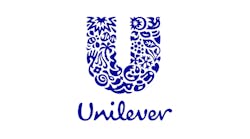Unilever Agrees to Pay $4.5 Million for Clean Water Act Violations at Former Connecticut Plant
Unilever PLC's U.S. division earlier this month pleaded guilty to two felony violations of the Clean Water Act, stemming from an illegal discharge of industrial wastewater at the company's former Clinton, Conn., manufacturing facility.
As part of the plea deal, the London-based consumer-products company agreed to pay a $1 million fine and pledged to contribute $3.5 million to state and local environmental programs.
On Dec. 5, 2008, a third-party contract employee at the Clinton facility noticed that a hose was being used to bypass the plant's wastewater-treatment system and was discharging the contents of a 4,500-gallon vacuum-filter tank directly to a storm-drain pipe leading to Hayden Creek, according to the U.S. Attorney's Office for Connecticut, which cited court documents and statements. After alerting a wastewater-treatment operator at the facility, the workers shut off the hose about 10 minutes later.
Within 45 minutes of observing the bypass, the contract employee notified the facility's EHS manager. The EHS manager went to the wastewater-treatment area "and observed foamy water and signs of recent discharge at the inlet of the storm-drain inlet."
The EHS manager took pictures and notified the plant manager, but chose to keep state environmental authorities out of the loop. Under the term's of the plant's discharge permit, Unilever was required to notify the Connecticut Department of Energy and Environmental Protection within two hours of becoming aware of any bypass.
The facility's permit "prohibited the company from bypassing any portion of its wastewater-treatment system unless the bypass was unanticipated, unavoidable and necessary to prevent loss of life, personal injury or severe property damage," the U.S. Attorney's Office noted.
When a state environmental inspector visited the Clinton facility three days later, plant authorities did not inform the inspector of the bypass that had occurred on Dec. 5. Unilever submitted a mandatory written report to the Connecticut Department of Energy and Environmental Protection on Dec. 10, within the required five-day period. The company disclosed the discharge to federal EPA in a written submission dated Dec. 16.
'Not the First Time'
After observing the illegal wastewater bypass on Dec. 5, 2008, the contract employee who first noticed it emailed the plant's EHS manager and stated: "This is not the first time I've seen this done at your facility," according to the U.S. Attorney's Office.
"I've seen this on two previous occasions," the contract employee said in the email. "At that time, however, I was still trying to learn the system as quickly as possible and didn't understand the significance of what I was viewing."
In the email, the contract employee asserted that the senior wastewater-treatment operator had performed the intentional bypass and had "done this on several occasions, and perhaps more often than we care to know."
On Dec. 8, 2008, the Unilever plant manager interviewed the two wastewater-treatment operators and the contract employee. All three individuals denied any responsibility for the bypass and indicated that they did not know who was responsible, although the contract employee reiterated that he believed that the senior operator was responsible.
Unilever conducted an internal investigation of the incident. In subsequent conversations and written communications with federal and state authorities throughout 2009 and 2010, Unilever claimed that it was unable to conclusively determine who was responsible for the bypass, and characterized the bypass as an isolated, "one-off" incident that might have been the work of unknown "vandals."
However, in an extensive EPA investigation, the junior operator admitted that he intentionally bypassed the system on Dec. 5.
EPA concluded that for an extended period of time - perhaps as long as two years prior to December 2008 - the wastewater-treatment operators routinely bypassed the system on a weekly basis, discharging approximately 1,500 gallons of partially treated wastewater at a time to the storm drain that led to Hayden Creek.
EPA's investigation established that the bypasses were concealed from and unknown to Unilever management, including the EHS manager and the plant manager. However, Unilever management was aware that operators were not properly overseeing the wastewater-treatment system and that the system was not properly functioning, according to the EPA investigation.
Among the EPA's findings:
- The strength, flow and variability of the facility's wastewater made it difficult to treat. System upsets and capacity limitations often necessitated that wastewater be trucked off site for treatment at a cost of approximately $1,500 per truckload. The operators had authority to call for trucking if needed for wastewater treatment.
- Portions of the treatment system were old and in need of repair and maintenance. Equipment replacements and system improvements recommended by outside consultants were not fully implemented, although some corrective measures were completed.
- The treatment system required constant operator attention and adjustment. Nevertheless, during 2008, the senior operator often was absent. The junior operator did not possess the required license or training to qualify him to operate the system independently for extended periods of time without supervision, yet he was allowed by Unilever to do so.
- Although the waste-treatment operators were licensed by the state of Connecticut and subject to applicable permit requirements, they required oversight to properly operate the plant. That oversight was inconsistent and the operators were allowed to act autonomously.
Unilever closed the Clinton, Conn., plant in 2012 "when it shifted production of personal-care products to other, more efficient company facilities in the U.S.," the company noted.
